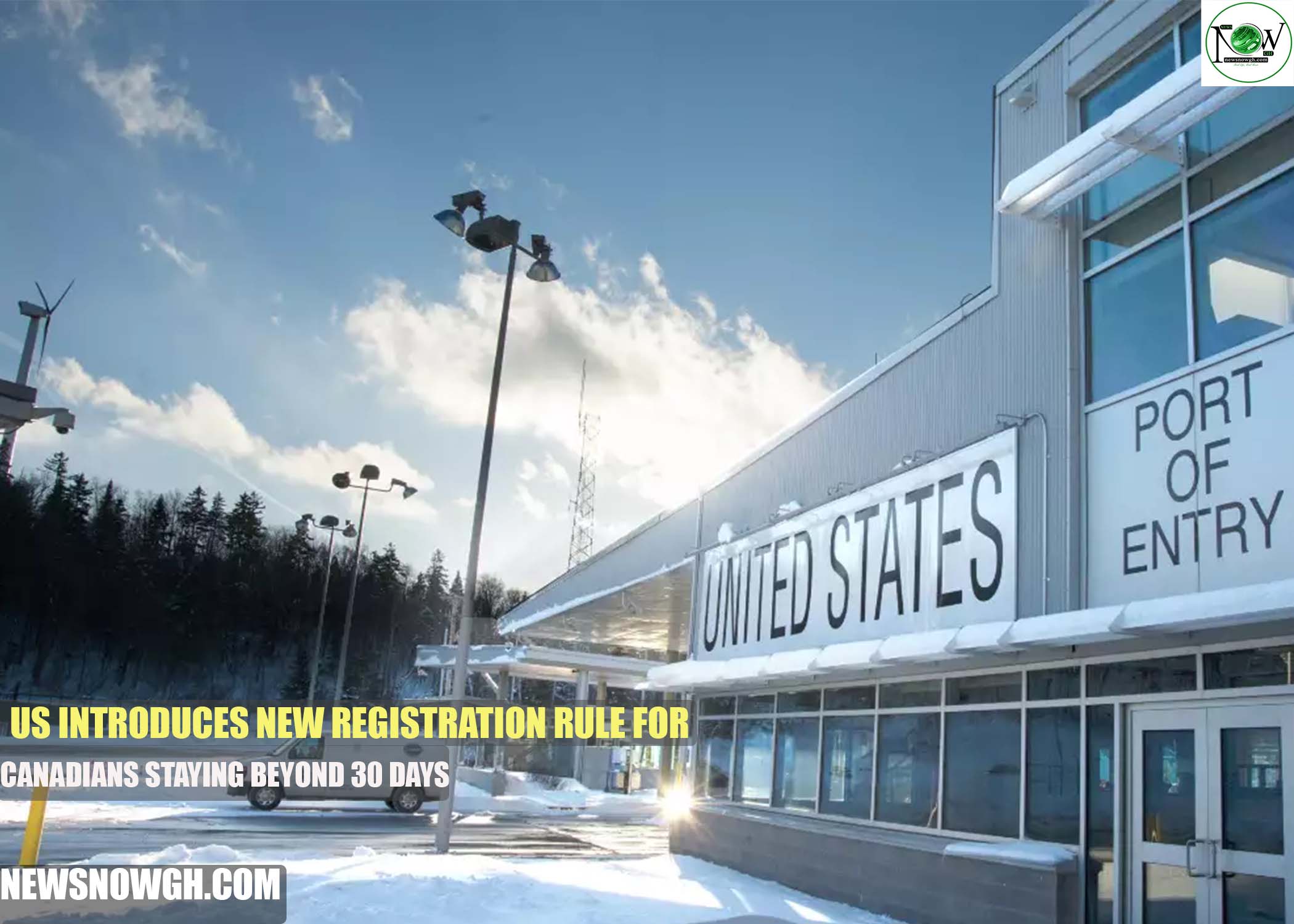US Introduces New Registration Rule for Canadians Staying Beyond 30 Days
Starting April 11, 2024, Canadians planning to stay in the United States for more than 30 days must comply with new registration regulations. This change, announced by the U.S. Department of Homeland Security (DHS), includes fingerprinting and other requirements. If you’re considering an extended trip, it’s essential to understand these new rules.
Who Needs to Register?
The new regulation primarily affects Canadian citizens aged 14 and older. This includes many “snowbirds,” who are retirees spending winter in warmer U.S. states. If you cross the U.S.-Canada land border and plan to stay for more than 30 days, you must register.
Key Changes for Travelers
Starting in April, registration will be mandatory for all Canadian visitors staying longer than 30 days. Additionally, anyone aged 14 and older will need to provide fingerprints. Failing to comply could lead to significant fines and other penalties.
Registration and Biometrics
Children under 14 are exempt from fingerprinting but must still be registered by their parents or guardians. Both business and tourist visitors entering the U.S. by land will also need to register if their stay exceeds 30 days. Those aged 18 and older must carry proof of registration at all times.
Detailed Requirements
The registration process includes several key points:
- All Canadians aged 14 and older must register.
- Fingerprinting is required for those 14 and older.
- Children under 14 need registration but no fingerprints.
- Business and tourist visitors must register for stays over 30 days, but they do not require biometric data.
Implications for Canadian Travelers
This new rule significantly impacts Canadian snowbirds. Previously, many enjoyed exemptions, but now they must comply to avoid fines. DHS estimates that this change will affect between 2.2 million and 3.2 million travelers annually. The registration aligns with broader immigration policies under the Immigration and Nationality Act (INA).
Consequences for Non-Compliance
Not registering or completing the required biometric steps can lead to serious consequences. Possible outcomes include:
- Fines, and misdemeanor charges.
- Criminal and civil penalties.
- Potential incarceration for violations.
- Registered noncitizens over 18 must keep proof of registration with them while in the U.S.
Steps to Register
To meet the new requirements, travelers must follow these steps:
- Complete Form G-325R, Biometric Information (Registration).
- Submit the form online via U.S. Citizenship and Immigration Services (USCIS).
- Attend a fingerprinting appointment unless exempted.
Conclusion
While the new registration process does not affect immigration status or employment authorization, it is now a critical step for Canadians planning extended visits to the U.S. It’s crucial for travelers to familiarize themselves with these regulations to avoid legal complications. Being proactive about registration will ensure a smoother travel experience.
Follow NewsNowGh to stay updated on the latest information regarding work permits, visas, and visa-sponsored employment.


